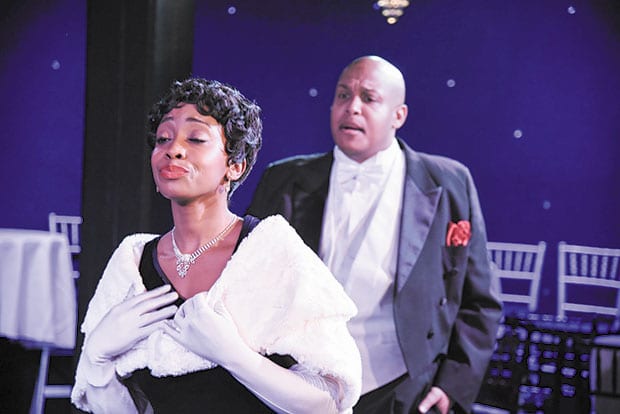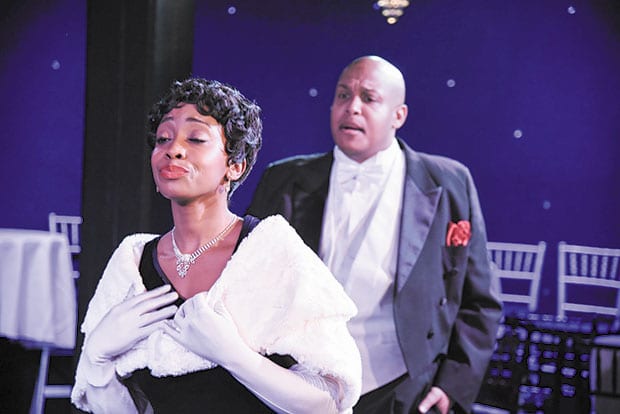The return of ‘Her Song’ is catchy cabaret … with a feminist message

Adelaide (Whitney Coulter) decides to ‘come out’ … as the author of hit songs in the romantic revue ‘Her Song.’ (Photo courtesy Rebecca Brooks)
It’s the Jazz Age, a time when men dress in tuxedoes and women wear long strings of pearls and hats with feathers. The champagne flows as freely as the music at the Echo Room, a speakeasy-style nightclub run by three siblings — Babe (Angela Davis), Edith (Terri Ferguson) and Montague (Greg Hullett) — who juggle the acts along with their own personal lives and those of the performers in their orbit.
 One singer, Adelaide (Whitney Coulter), has an especially intriguing secret: She’s the actual author of many of the songs that Montague takes credit for. After all, she’s an African-American woman at a time when people aren’t ready for “race” music … or even a prominent female songwriter.
One singer, Adelaide (Whitney Coulter), has an especially intriguing secret: She’s the actual author of many of the songs that Montague takes credit for. After all, she’s an African-American woman at a time when people aren’t ready for “race” music … or even a prominent female songwriter.Except that’s what they are already getting — they just don’t know it.
In the four years that Dallas-based Echo Theatre — a company devoted to stories by and about women — has produced Her Song, the experience has always been different … but the message is always the same. Women have made substantial and lasting impacts on all facets of society, even if they don’t get the recognition they deserve.
The show — part musical revue, part play, part cabaret (you can even get tickets that seat you at café tables on the stage, with the actors moving in and out and performing their scenes among you) — recreates the energy and glamour of a 1930-ish jazz club, down to serving audience members cocktails and food (you pay extra for that, of course) And while there’s a script (revised this year by music director Scott A. Eckert, who also tweaked the lineup of songs), there’s also spontaneity and a sense of improv. Audience members are even recruited to be part of the action (some even turn up dressed in cosplay-like period outfits).
The performers do a great job — changing costumes repeatedly, flirting and enchanting us with close harmonies on ballads, novelty songs and standards from the Great American Songbook — all written, in whole or in part, by women. It’s all so romantic and fun.
This article appeared in the Dallas Voice print edition February, 17 2017.




